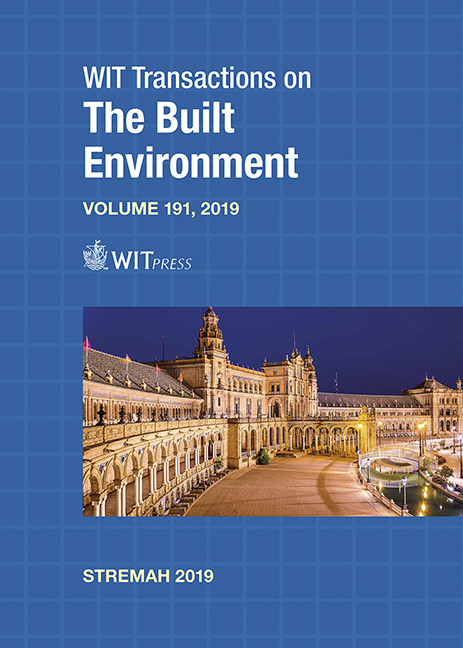CONSOLIDATION OF NATURAL STONE WITH CALCIUM HYDROXIDE NANOSUSPENSION IN ETHANOL AND VERIFICATION OF SURFACE HARDENING RATE
Price
Free (open access)
Transaction
Volume
191
Pages
9
Page Range
359 - 367
Published
2019
Paper DOI
10.2495/STR190311
Copyright
WIT Press
Author(s)
KLÁRA KROFTOVÁ, DAVID ŠKODA, JIŘÍ WITZANY, TOMÁŠ ČEJKA
Abstract
The modern consolidating agents, used in the care of cultural heritage for the past 20 years, include dispersion and colloid systems of not only organic consolidants, but also mineral systems with particle sizes in nano-dimensions. Among these materials, calcium hydroxide nanodispersion plays an important role. The compatibility of the consolidant with the lime-based original building material, deep penetration due to the particle size, and no mobilisation of soluble salts are advantages attributed to alcoholic lime nanodispersions. The assessment of the consolidating efficiency of the tested products are based on performance of both the destructive and the non-destructive laboratory tests. The penetration depth, thermal and moisture expansion, material strength, abrasion, modulus of elasticity, vapor permeability, microstructure (porosity, pore distribution and interconnection) and density can be listed as monitored criteria. For historical material is also important to monitor the change of color or texture on visible surface of the material. The paper presents a partial result of the NAKI II DG16P02M005 research project dealing with the verification of potential use of selected lime nanosuspensions (newly prepared calcium hydroxide nanosuspensions in alcohols and market available lime-nanodispersion CaLoSiL®) for the consolidation of historic lime based materials. The paper presents a comparative laboratory and experimental study on the effects of three different calcium hydroxide based agents on consolidating a porous limestone.
Keywords
stone, limestone, lime water, nanosuspension, CaLoSiL, consolidation, strengthening




